Elevate your local knowledge
Sign up for the iNFOnews newsletter today!
Sign up for the iNFOnews newsletter today!
Selecting your primary region ensures you get the stories that matter to you first.
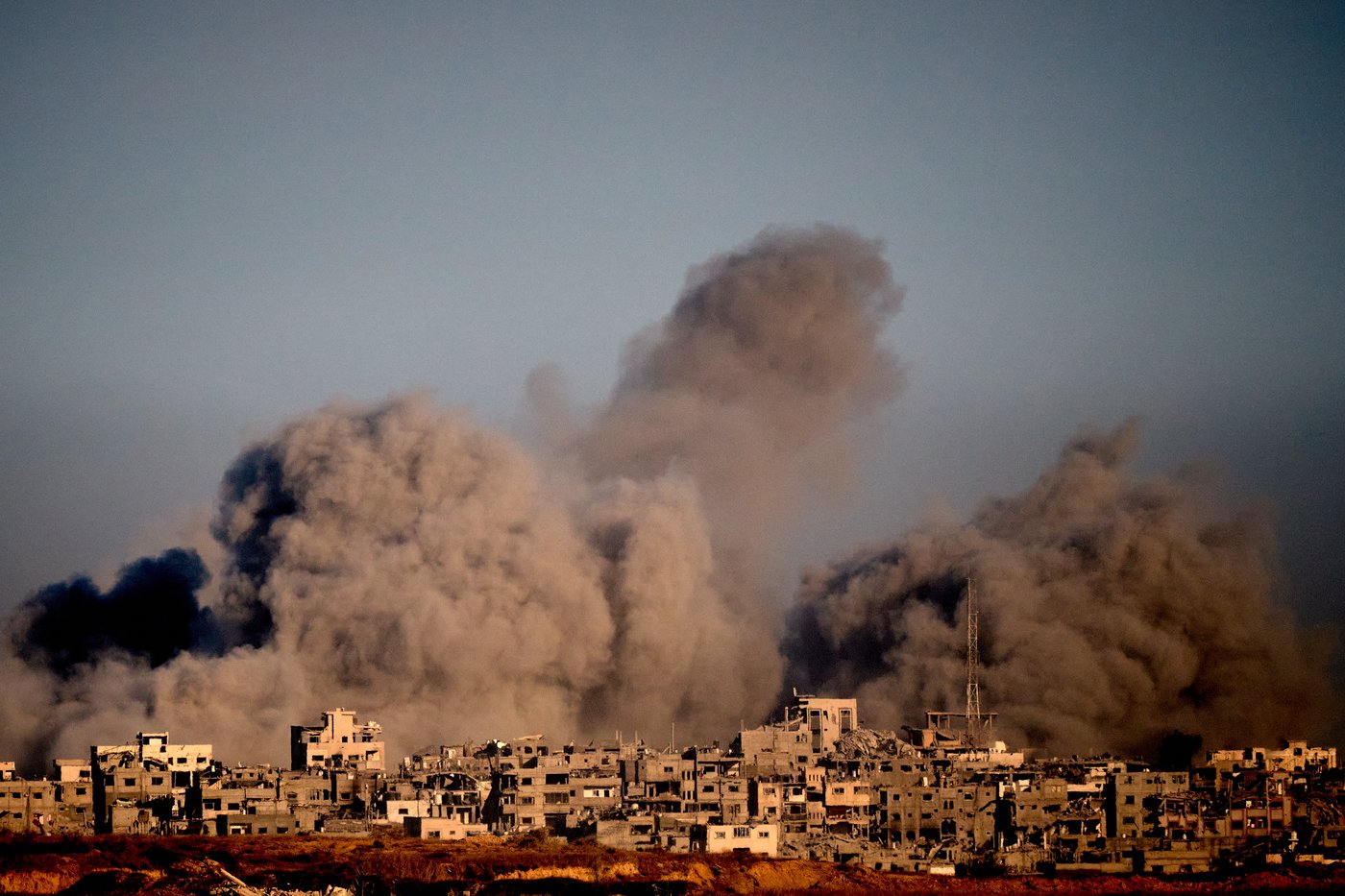
WASHINGTON (AP) — Israel and Hamas agreed Wednesday to pause fighting in Gaza so that the remaining hostages there can be freed in the coming days in exchange for Palestinian prisoners, accepting elements of a plan put forward by the Trump administration that would represent the biggest breakthrough in months in the devastating two-year-old war.
“This means that ALL of the Hostages will be released very soon, and Israel will withdraw their Troops to an agreed upon line as the first steps toward a Strong, Durable, and Everlasting Peace,” President Donald Trump wrote on social media in trumpeting the agreement. “All Parties will be treated fairly!”
Israel and Hamas separately confirmed the contours of their deal, which drew celebratory gatherings from hostage families in Tel Aviv and cautious optimism from some in Gaza. Hamas intends to release all 20 living hostages in a matter of days, while the Israeli military will begin a withdrawal from the majority of Gaza, people familiar with the matter told The Associated Press on condition of anonymity to discuss details of an agreement that has not fully been made public.
Uncertainty remains about some of the thornier aspects of Trump’s proposal — such as whether and how Hamas will disarm, and who will govern Gaza — but the sides appear closer than they have been in several months to ending a war that has killed tens of thousands of Palestinians, destroyed most of Gaza and triggered other armed conflicts across the Middle East. The war, which began with Hamas’ deadly attack on Israel on Oct. 7, 2023, has sparked worldwide protests and brought allegations of genocide that Israel denies.
Israel is more isolated than it has been in decades and Israelis have been bitterly divided over the failure to return the hostages. Palestinians’ dream of an independent state, meanwhile, appears more remote than ever despite recent moves by major Western countries to recognize one. With the outlook bleak as the war’s two-year anniversary approached, the Trump administration put forward a plan last month that it hoped would result in a permanent end to the war and bring about a sustainable peace in the region.
Talks to hammer out a deal have been underway in Egypt since the start of the week, and by the end of the third day of negotiations, a breakthrough emerged.
“With God’s help we will bring them all home,” Israeli Prime Minister Benjamin Netanyahu proclaimed on social media shortly after Trump announced an agreement on the first phase of his plan was at hand. Netanyahu said he would convene the government on Thursday to approve the deal.
For its part, Hamas called on Trump and the mediators to ensure that Israel implements “without disavowal or delay” a deal that it said would require the withdrawal of Israeli troops from Gaza, the entry of aid into the territory and the exchange of prisoners for hostages.
It was unclear from Trump’s statement how much progress has been made on the most divisive aspects of his plan, such as Hamas’ potential disarmament — a demand Israel has insisted upon but the militant group has repeatedly refused. Hamas has long said it will not release the remaining hostages without a lasting ceasefire and guarantees the war would not resume after they are freed.
Trump’s peace plan
The Trump plan called for an immediate ceasefire and release of the 48 hostages that militants in Gaza still hold from their attack on Israel two years ago. Some 1,200 people were killed by Hamas-led militants, and 251 were taken hostage. Around 20 of the hostages are believed to still be alive.
In an interview on Fox News, Trump said Hamas will begin releasing hostages “probably” on Monday.
“This is more than Gaza,” he said. “This is peace in the Middle East.”
Officials have expressed concerns over how long it may take Hamas and other Palestinian militant groups holding Israelis to locate and return the remains of those believed to be dead, as required under the agreement.
Under the plan conceived by Trump, Israel would maintain an open-ended military presence inside Gaza, along its border with Israel. An international force, comprised largely of troops from Arab and Muslim countries, would be responsible for security inside Gaza. The U.S. would lead a massive internationally funded reconstruction effort in Gaza.
The plan also envisions an eventual role for the Palestinian Authority — something Netanyahu opposes. But it requires the authority, which administers parts of the West Bank, to undergo a sweeping reform program that could take years to implement.
The Trump plan is even more vague about a future Palestinian state, which Netanyahu firmly rejects.
Even as many details of Trump’s full plan have yet to be agreed to by both sides, some Palestinians and Israelis expressed happiness and relief at the significant progress that had been made.
“It’s a huge day, huge joy,” Ahmed Sheheiber, a Palestinian displaced man from northern Gaza, said of the ceasefire deal.
Crying over the phone from his shelter in Gaza City, he said he was waiting “impatiently” for the ceasefire to go into effect to return to his home in the Jabaliya refugee camp.
Joyful hostage families and their supporters began spilling into the central Tel Aviv square that has become the main gathering point in the struggle to free the captives. Some popped open a bottle of Champagne and cheered. Crying tears of joy, families hugged released hostages as the square continued to fill with Israelis.
Einav Zangauker, the mother of Israeli captive Matan Zangauker and a prominent advocate for hostages’ freedom, told reporters that she wants to tell her son she loves him.
“I want to smell his smell,” she said. “If I have one dream, it is seeing Matan sleep in his own bed.”
Hints of progress
The arrival of Trump’s Middle East envoy, Steve Witkoff, and the president’s son-in-law, Jared Kushner, on Wednesday at Sharm el-Sheikh for the peace talks, which were also attended by Qatar’s prime minister, Sheikh Mohammed bin Abdulrahman Al Thani, was a sign that negotiators aimed to dive deeply into the toughest issues of the American plan to end the war. Netanyahu’s top adviser, Ron Dermer, was also present for the talks.
Trump expressed optimism earlier in the day by saying that he was considering a trip to the Middle East within a matter of days.
Yet another hint of an emerging deal came later in that event when U.S. Secretary of State Marco Rubio passed Trump a note on White House stationery that read, “You need to approve a Truth Social post soon so you can announce deal first.” Truth Social is the president’s preferred social media platform.
The note prompted Trump to proclaim, “We’re very close to a deal in the Middle East.”
This would be the third ceasefire reached since the start of the war. The first, in November 2023, saw more than 100 hostages, mainly women and children, freed in exchange for Palestinian prisoners before it broke down. In the second, in January and February of this year, Palestinian militants released 25 Israeli hostages and the bodies of eight more in exchange for nearly 2,000 Palestinian prisoners. Israel ended that ceasefire in March with a surprise bombardment.
Praying for a deal
A growing number of experts, including those commissioned by a U.N. body, have said that Israel’s offensive in Gaza amounts to genocide — an accusation Israel denies. More than 67,000 Palestinians have been killed in Gaza and nearly 170,000 wounded, according to Gaza’s Health Ministry.
The ministry, which doesn’t differentiate between civilians and combatants but says around half of the deaths were women and children, is part of the Hamas-run government. The United Nations and many independent experts consider its figures to be the most reliable estimate of wartime casualties.
In the Gaza Strip, where much of the territory lies in ruins, Palestinians have been desperate for a breakthrough. Thousands fleeing Israel’s latest ground offensive in northern Gaza and Gaza City have set up makeshift tents along the beach in the central part of the territory, sometimes using blankets for shelter.
Ayman Saber, a Palestinian from Khan Younis, reacted to the ceasefire announcement by saying he plans to return to his home city and try to rebuild his house, which was destroyed last year by an Israeli strike.
“I will rebuild the house, we will rebuild Gaza,” he said.
___
Associated Press writers Eric Tucker in Washington, Sarah El Deeb in Beirut and Melanie Lidman in Tel Aviv contributed to this report. Magdy reported from Cairo and Mednick from Tel Aviv, Israel.
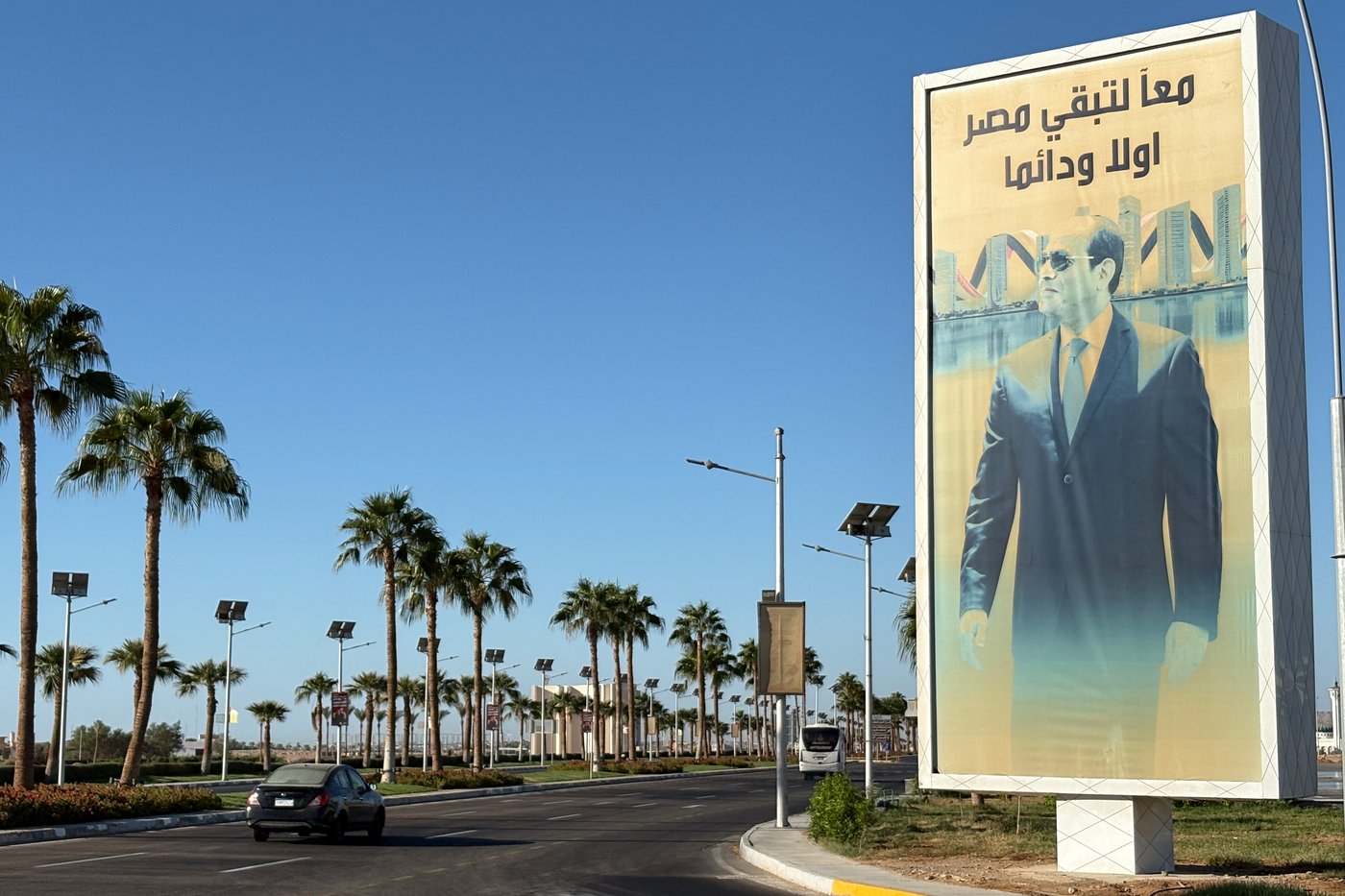
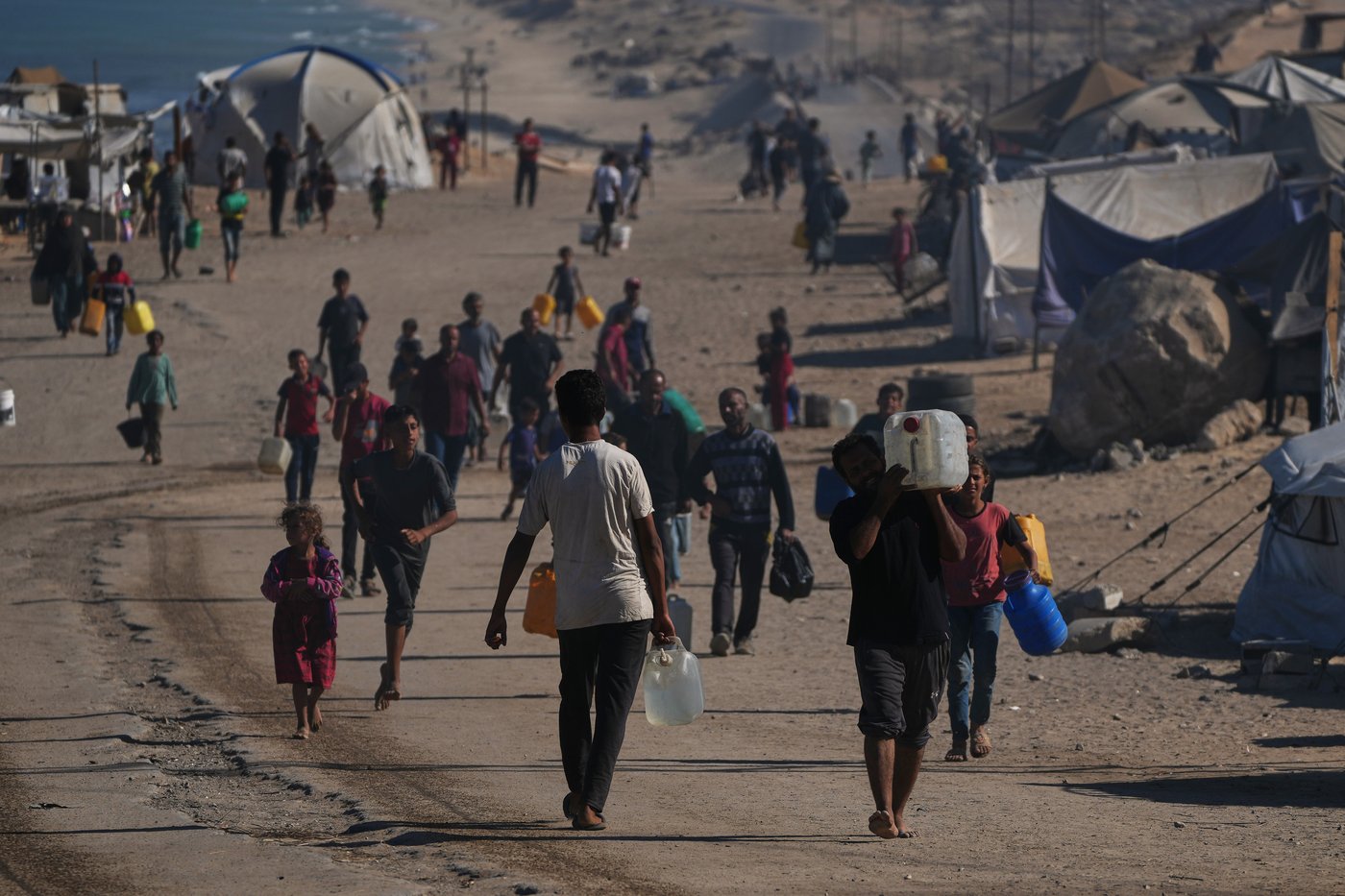
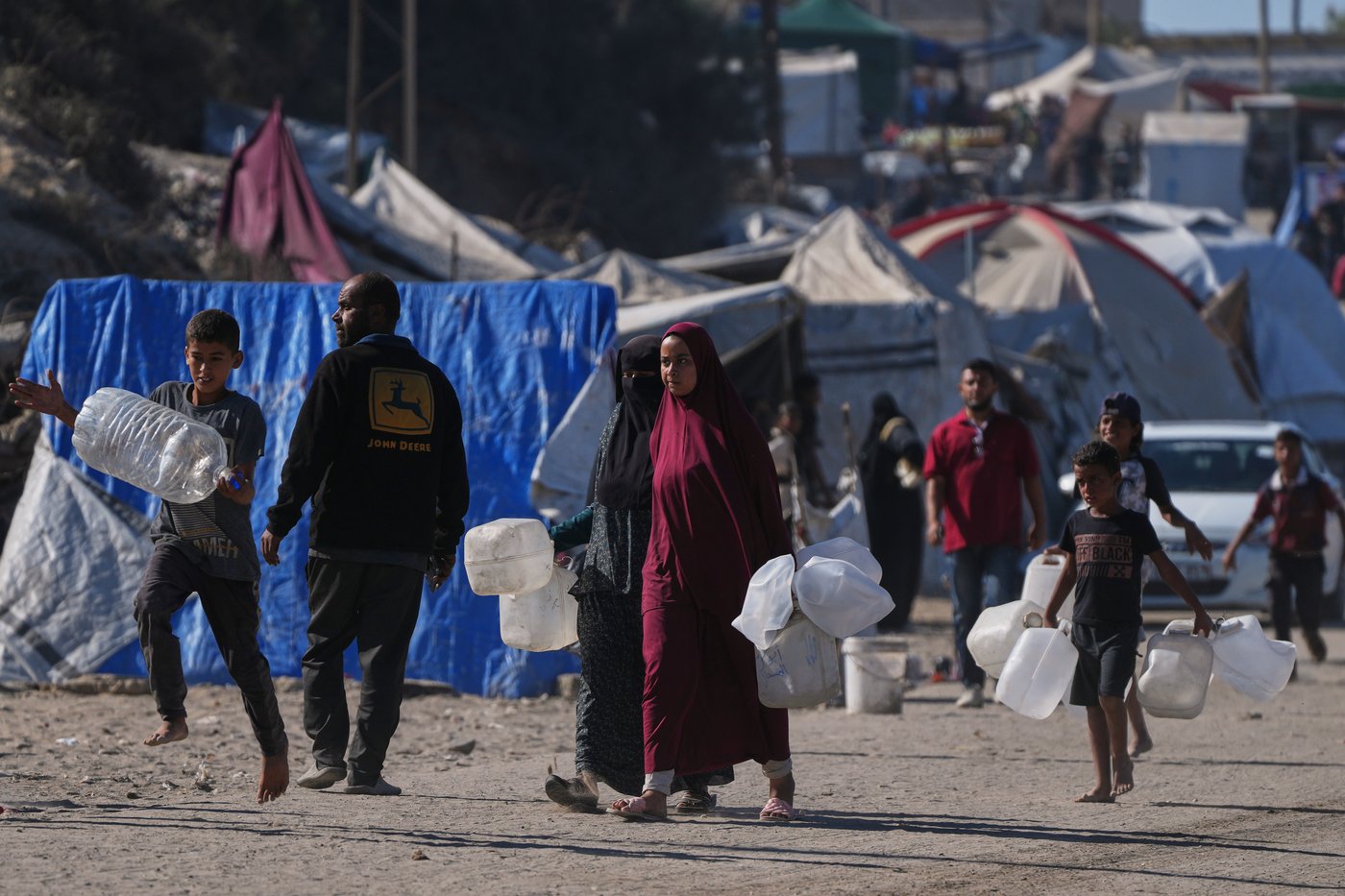
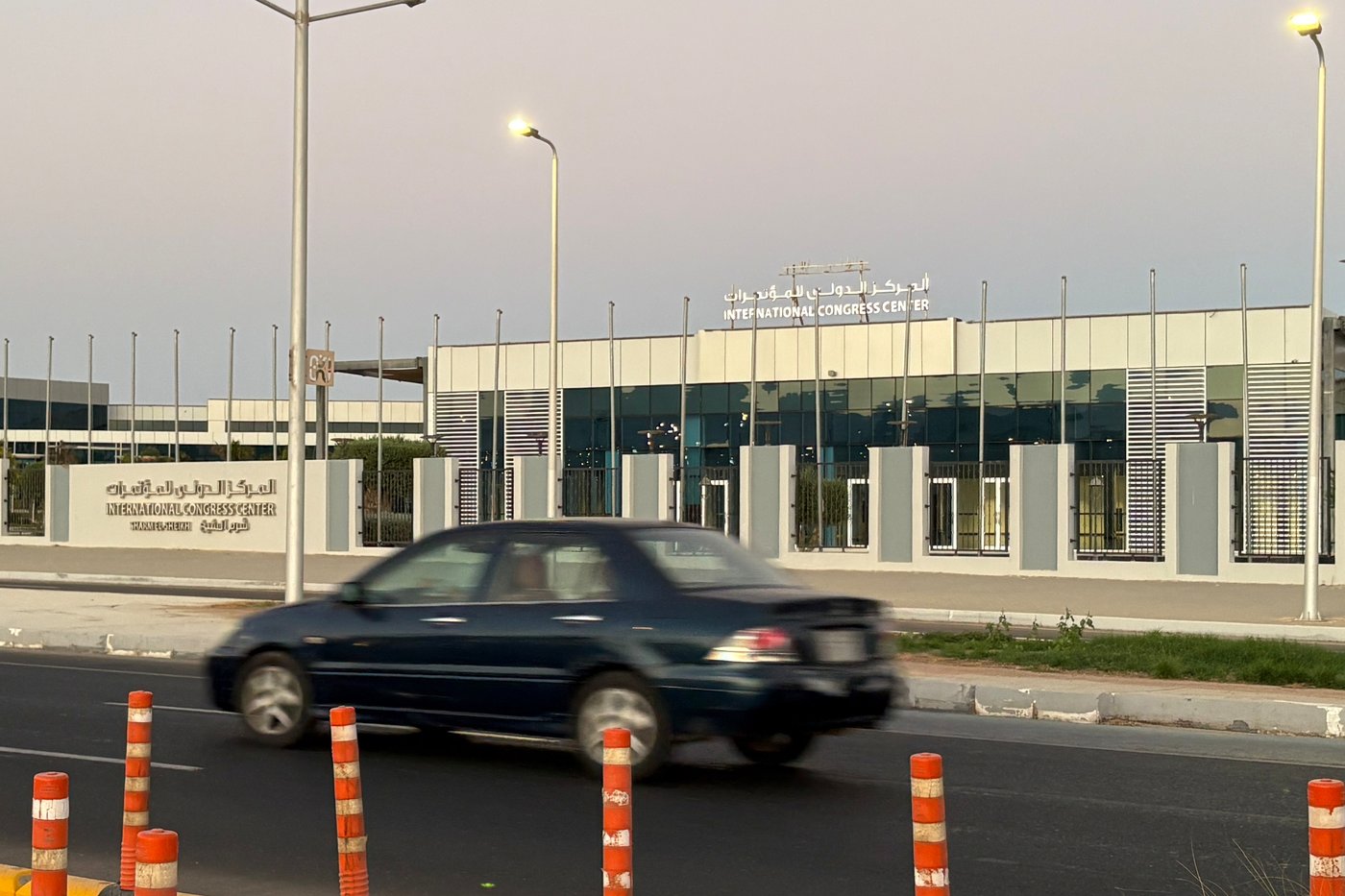
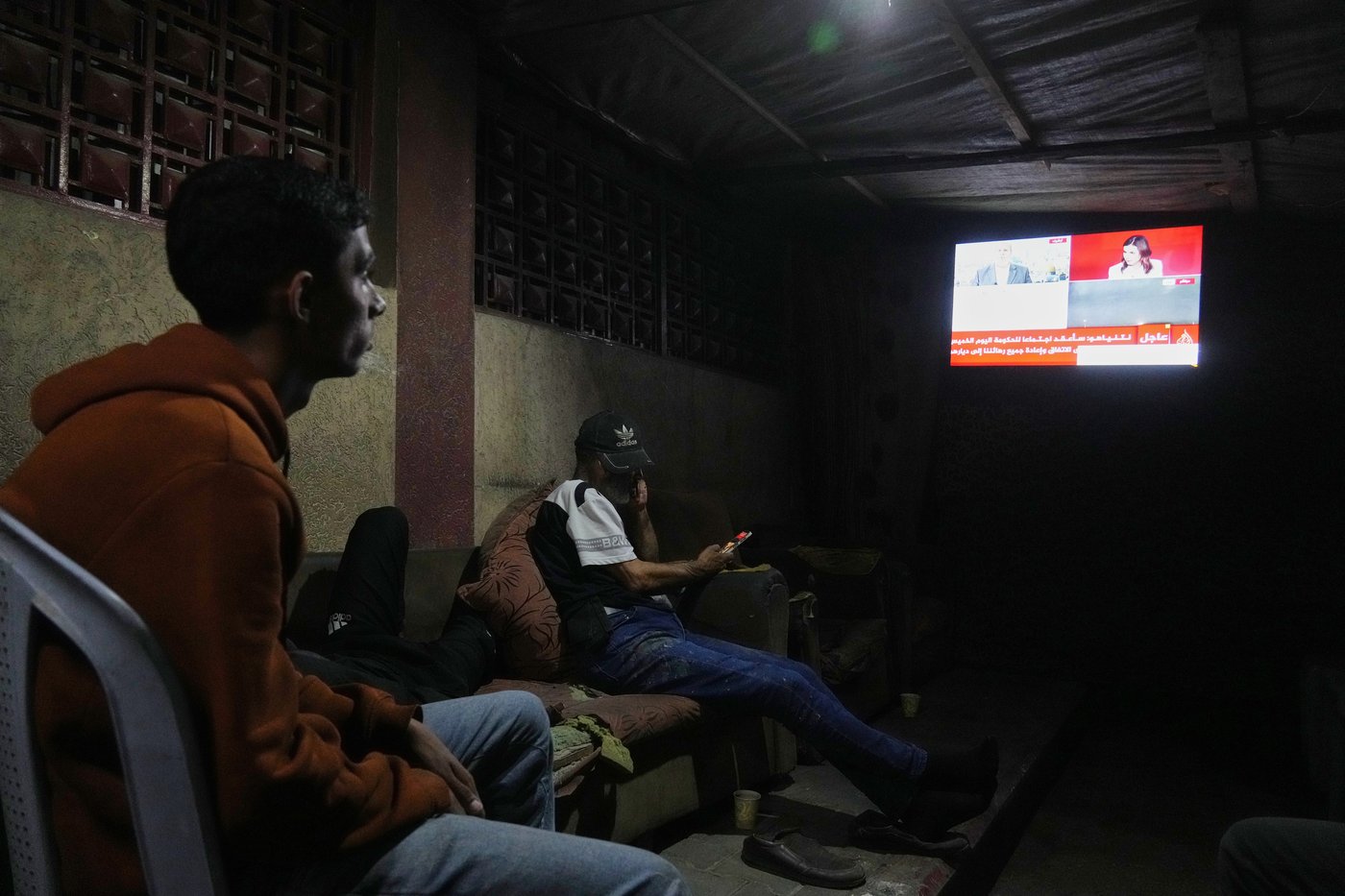
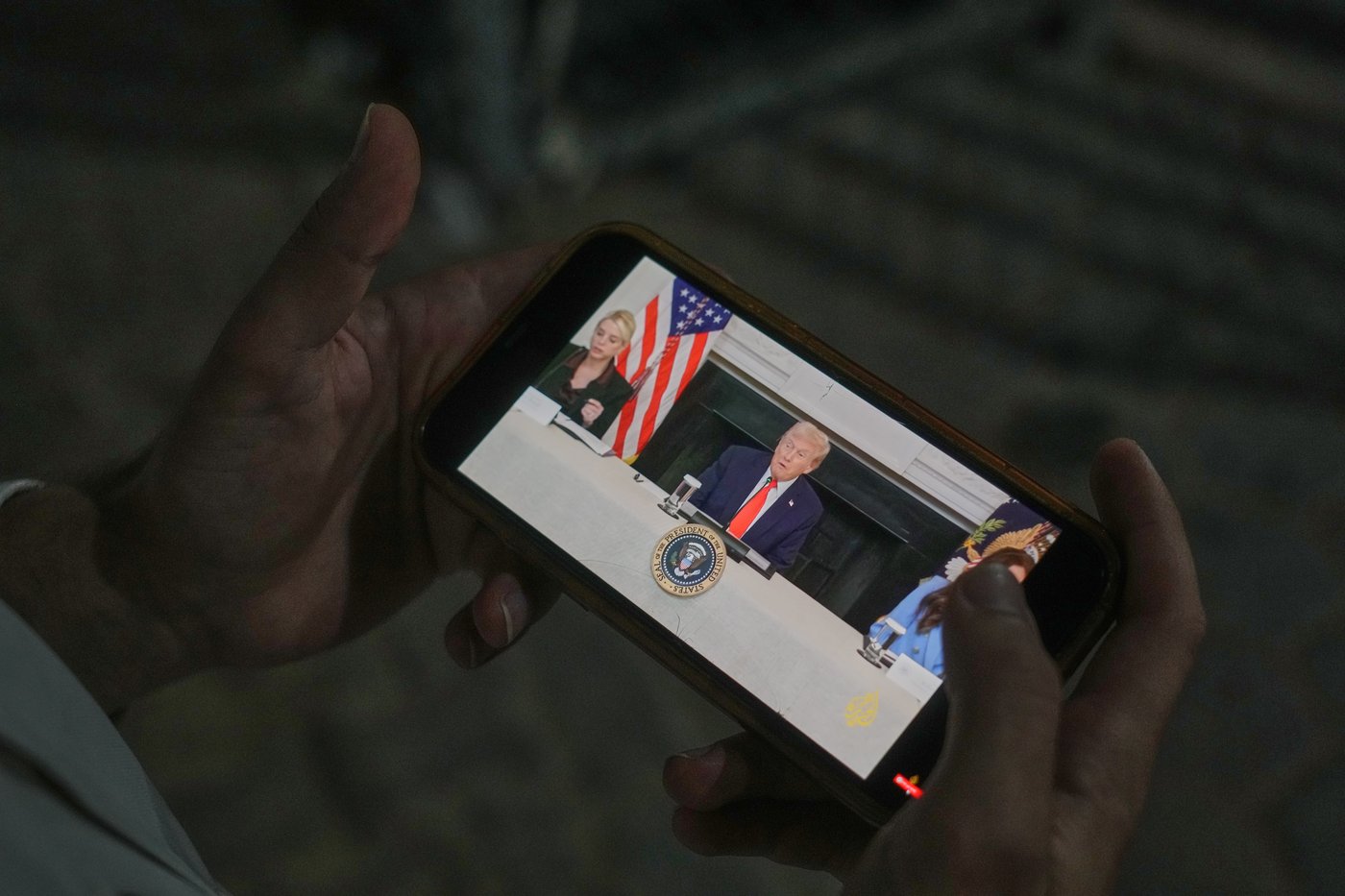
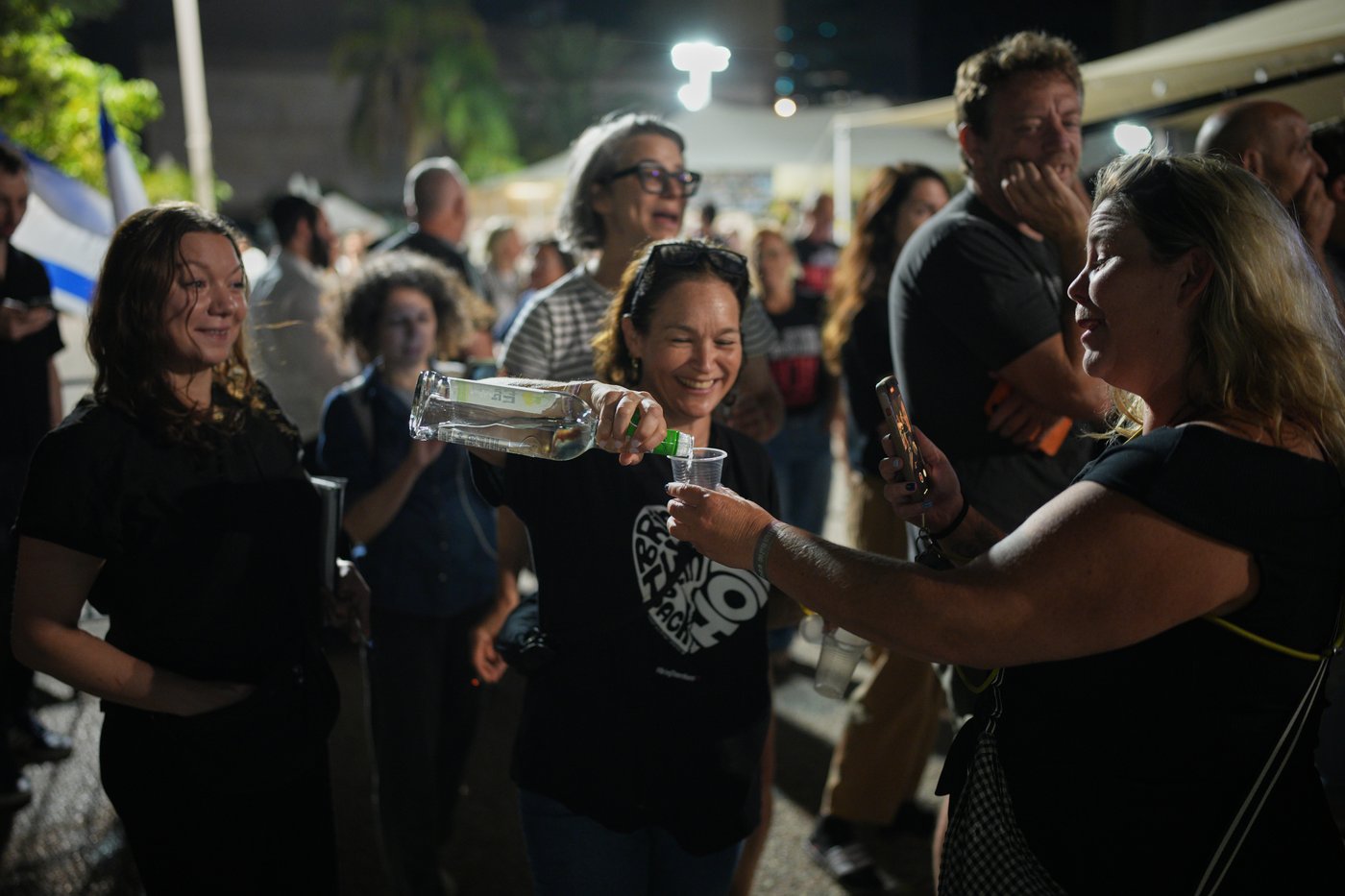
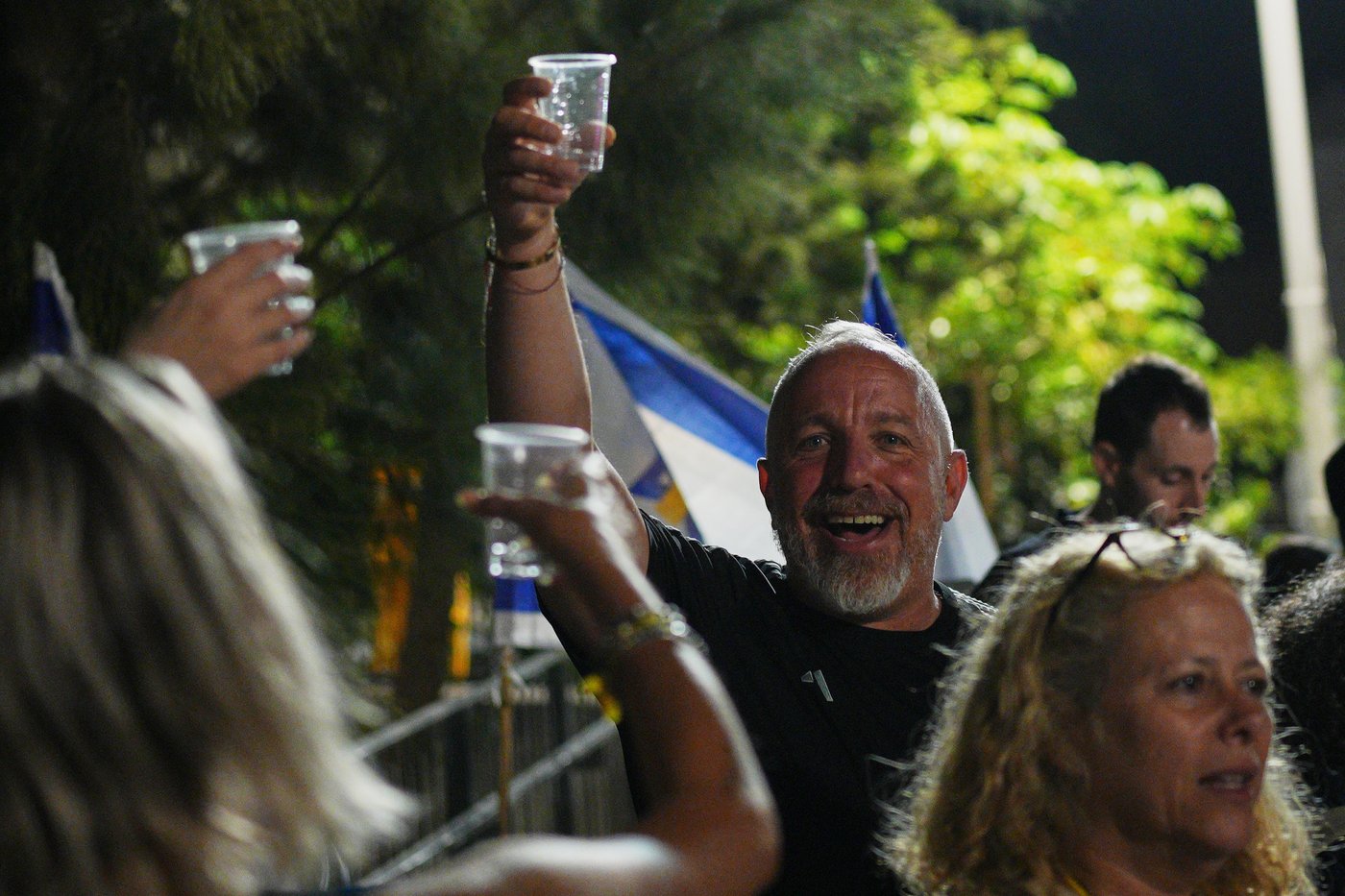
This site is protected by reCAPTCHA and the Google Privacy Policy and Terms of Service apply.
Want to share your thoughts, add context, or connect with others in your community?
You must be logged in to post a comment.